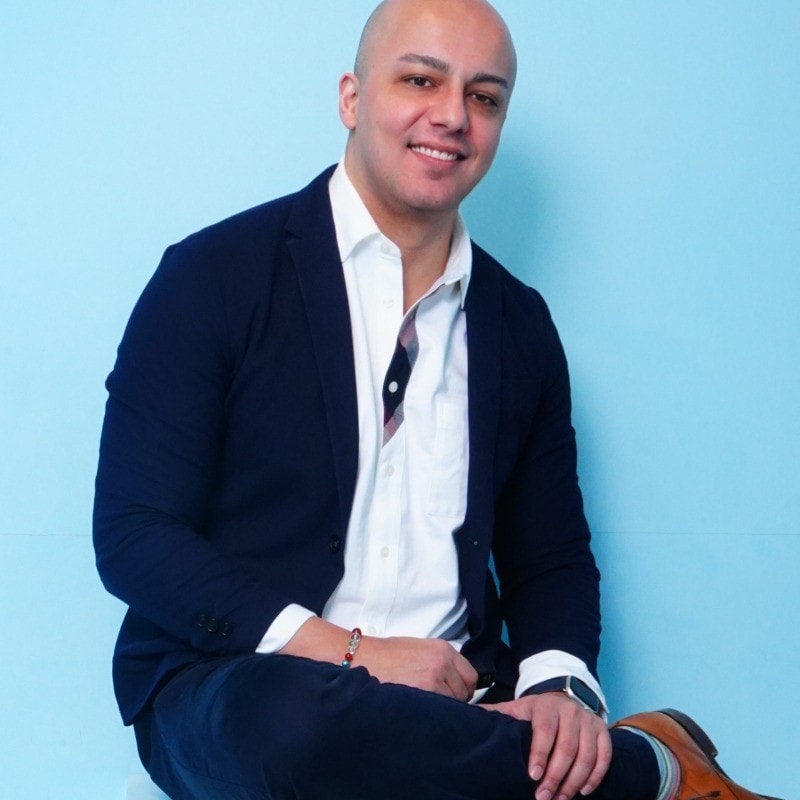With the way artificial intelligence is advancing and becoming a part of everyday life, it’s likely that AI will also have a major impact on higher education, especially for those pursuing careers in medicine or law.
In an interview with Business Insider, Jad Tarifi, the 42-year-old founder of Google’s first generative AI team, who left the company in 2021 to launch his own startup, Integral AI, shared his views on the future of these fields. He believes that artificial intelligence may soon render degrees in law or medicine obsolete.
“In the current medical system, what you learn in medical school is so outdated and based on memorization,” Tarifi told the publication. Since these degrees take many years to complete – and require a significant investment of both time and money, Tarifi suggests that pursuing them could mean “throwing away” several years of one’s life, especially with how rapidly AI is evolving.
“I have a PhD in AI,” he added, “but I don’t know how the latest microprocessor works.”
 Jad Tarifi, the 42-year-old founder of Google’s first generative AI team. (Image: LinkedIn)
Jad Tarifi, the 42-year-old founder of Google’s first generative AI team. (Image: LinkedIn)
And for those considering a postgraduate degree in AI, thinking it might secure their future in the long run and remain unaffected, Tarifi advises against it. The former Googler suggested that those planning to pursue such a degree should reconsider.
“Even things like applying AI to robotics will be solved by the time you complete a PhD,” Tarifi said. “So either get into something niche, like AI for biology, which is still in its very early stages, or just don’t get into anything at all.”
Tarifi joins a growing number of experts and commentators who have expressed concerns about how AI is creating a perfect storm in the job market. In fact, AI could wipe out half of all entry-level, white-collar jobs and push unemployment to 10–20 per cent within the next one to five years, according to Dario Amodei, CEO of Anthropic, in an interview with Axios in May.
Story continues below this ad
“I’m not sure that college is preparing people for the jobs they need today,” Mark Zuckerberg said on Theo Von’s This Past Weekend podcast in April. “I think there’s a big issue there, and all the student debt issues are… really significant.” Even OpenAI CEO Sam Altman recently stated that his company’s latest AI model can already perform at a level equivalent to that of a PhD holder.
“GPT-5 really feels like talking to a PhD-level expert on any topic,” Altman said earlier this month. “Something like GPT-5 would have been pretty much unimaginable at any other point in history.”
However, for those pursuing a PhD in AI, job prospects remain strong, with the world’s biggest tech companies willing to offer nine-figure salaries and equity to attract PhD holders from top American universities. In June, Meta CEO Mark Zuckerberg hired Alexandr Wang, the 28-year-old former CEO of data-labeling giant Scale AI, and acquired a 49 percent stake in the company.
Wang has been tasked with leading a new lab within Meta focused on developing a hypothetical “superintelligence”, an artificial intelligence system that outperforms humans across a wide range of cognitive tasks. He was joined by Nat Friedman, a prominent AI-focused investor and former CEO of GitHub, along with about a dozen top researchers freshly poached from OpenAI, Google DeepMind, and Anthropic.
Story continues below this ad
Some of these researchers were reportedly offered compensation packages ranging from $100 million to $300 million, spread over four years.




Average Rating